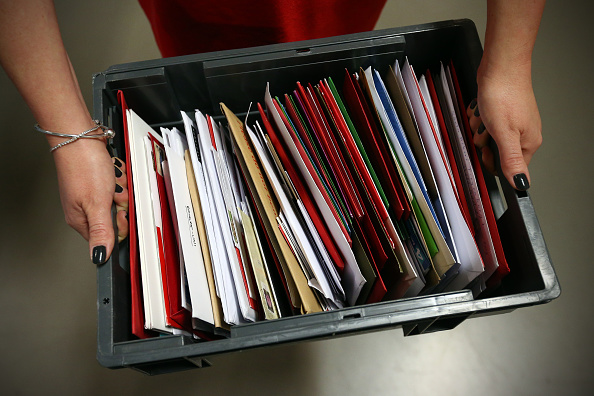Royal Mail warns against further price rises as it fails to keep up with pandemic momentum

Royal Mail said it would try to “mitigate” soaring prices through “price increases and growth initiatives”, just months after the firm increased first class stamp prices by 10p to 95p and second class stamps by 2p to 68p.
Revenue was down 1.6 per cent year-on-year reflecting changing consumer behaviour following removal of lockdown restrictions and lower international volumes.
Domestic parcel volume was up 31 per cent compared to pre-pandemic figures, but down seven per cent year-on-year due to normalisation post lockdown restrictions.
Covid test kits accounted for around seven per cent of total parcel volume in 2021-22. Addressed letters (ex. elections) volume grew three per cent year-on-year following sharp declines last year; down 18 per cent down versus 2019 levels.
In terms of Royal Mail’s progress with its turnaround programme, the firm posted £59m in benefits delivered from Pathway to Change agreement, which is still at the low end of the revised £55 – 80m range. This was based on the good performance in processing and insufficient progress in Delivery.
The firm achieved 50 per cent parcel automation ,with the North West hub on track to open in June 2022.
For the General Logistics Systems (GLS) side of the business, Royal Mail said it is making good progress in France and Canada, but was seeing margin pressure in the US.
It is subsequently taking actions to address short term challenges, including price increases and accelerating efficiency opportunities in this space too. Royal Mail Non-Executive Chair Keith Williams said: “GLS can leverage its business model to become more global, digital and diverse.”
Looking ahead, assuming there is no material industrial disruption, the current adjusted operating profit consensus is around £303m, with cost savings in excess of £350m identified to mitigate macro-economic pressures.
Assuming rebound in GDP growth in 2023-24, the mail provider said it had a target of €500m operating profit in 2024-25 and the aim of €1bn accumulated free cash flow by 2024-25 can still be achieved.
Commenting on the results, Simon Thompson, Chief Executive, Royal Mail said: “It has been a year of progress, but there is much more to do”.
“As we emerge from the pandemic, the need to accelerate the transformation of our business – particularly in delivery – has become more urgent. Our future is as a parcels business, so we need to adapt old ways of working designed for letters and do it much more quickly to a world increasingly dominated by parcels.
Discussing the results, AJ Bell investment director Russ Mould said: “Royal Mail had been making real progress with its turnaround plans, with the surge in parcel deliveries during the pandemic helping to lift a share price which had struggled since its 2013 privatisation.
“Now inflationary pressures are threatening to unpick that progress and have reignited troubles with its work force as talks continue to avert a potential nationwide strike.
“Pay increases can’t hope to keep pace with rising prices and demands for more flexibility from staff, including working Sundays, are unsurprisingly going down like a lead balloon.
“Chief executive Simon Thompson seems to be deliberately raising the stakes – describing the transformation of the company ‘at a crossroads’. The direction it takes next could determine whether the privatisation will ever be considered a success, particularly for long-suffering shareholder
Royal Mail completed a £400m return to shareholders via share buyback and special dividend, and the board is proposing a final dividend of 13.3 pence per share, and full year ordinary dividend of 20 pence per share.
Royal Mail is facing an ongoing pay dispute with its largest labour union after announcing that 700 jobs would be axed in January, and culling 2000 roles in June 2020.